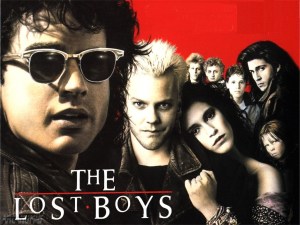(Editor’s note: Jeff Bussgang is a General Partner at Flybridge Capital Partners. This column originally appeared on his blog Seeing Both Sides.)
I’ve been worrying lately that we are suffering from a lost generation of entrepreneurs.
That was my first reaction when I read what Sequoia’s Doug Leone said a few weeks ago about innovation and age at a recent talk with MIT Sloan students visiting Silicon Valley. In a nutshell, Leone claimed that only people under the age of 30 are truly innovative. Over 30 folks can manage innovation, he observed, but you need to be under 30 to create it. Examples cited included Jack Dorsey, Twitter’s founder who was 30 at the time that he started the service.
Now you can argue whether this is right or whether it’s a hyperbolic statement for effect, but let’s put that aside for now. Here’s my worry: when I was under 30, I had the opportunity to be a part of a rocket ship start-up (Open Market), that promoted me into an executive team position of a public company in my 20s.
AI Weekly
The must-read newsletter for AI and Big Data industry written by Khari Johnson, Kyle Wiggers, and Seth Colaner.
Included with VentureBeat Insider and VentureBeat VIP memberships.
The lessons and skills from that experience inspired me to delude myself into thinking I could be the founding president of another start-up, Upromise, when I was 30. At the time, when I looked around at my peers and friends, they were all doing the same thing at a similar age. Folks like Jeff Glass, who started m-Qube at around the same time and age, Scott Friend, who became president of ProfitLogic, Russ Wilcox at e-Ink and many more). These companies all eventually became substantial firms that each resulted in exits north of $100 million.
Now fast-forward to today. During the period of 2001-2009, there have been very few substantial start-ups that allow that generation’s 20-somethings to learn and develop company-building skills. As a result, we have a lost generation of entrepreneurs.
Not enough 20-somethings, or let’s even say under 35, have had the opportunity to see success at a young age and learn the important lessons of start-up leadership. I think once you’ve seen some success in your 20s, you are that much more likely to be a strong entrepreneurial advocate, mentor and serial starter in your 30s.
When my partners and I tried to develop a list of today’s under 35 entrepreneurs who had started companies and seen meaningful success with them, it was a depressingly short list.
We had Twitter’s Dorsey, of course. And Mark Zuckerburg is an obvious one – as are the YouTube founders, Chad Hurley and Steve Chen. Less well-known standouts include the Great Point Energy team (Andrew Pearlman and Avi Goldberg), who saw some success at Coatue (sold to AMD) which led them to starting what looks to be a fascinating and potentially game-changing clean energy company. And there’s Ric Fulop, who co-founded A123 in his late 20s, last year’s IPO darling.
So what do we do about it? About the only thing that springs to mind is celebrating the heck out of the under 35 entrepreneurs we know who have seen success. We need their peers to know that it’s possible and encourage them to serve as role models to today’s students. Otherwise, we could suffer from yet another lost generation in the years ahead.
With that in mind, who else should be on our list? Sound off in the comments below.
VentureBeat's mission is to be a digital town square for technical decision-makers to gain knowledge about transformative enterprise technology and transact. Learn More